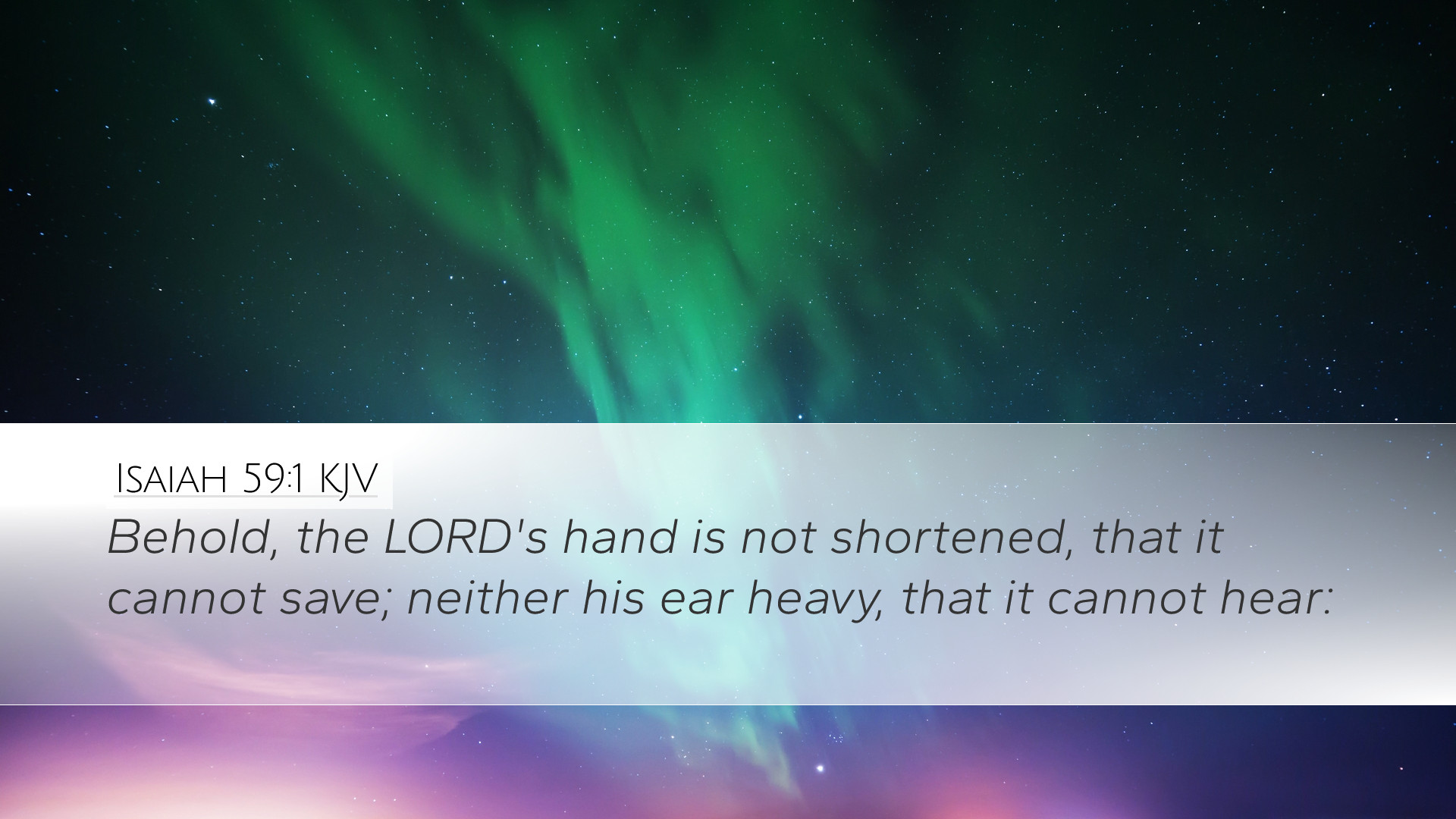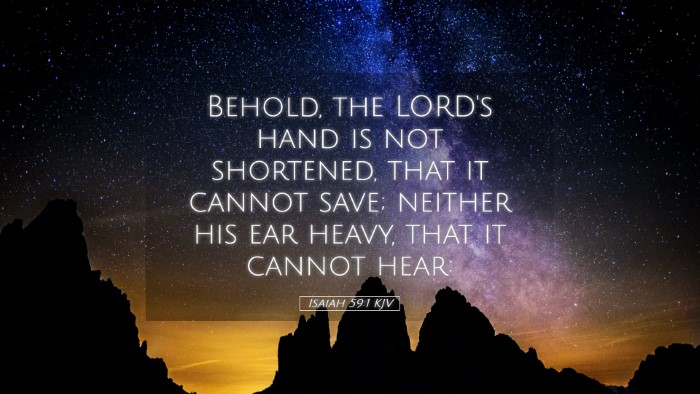Commentary on Isaiah 59:1
Verse: "Behold, the LORD's hand is not shortened, that it cannot save; neither his ear heavy, that it cannot hear:" (Isaiah 59:1, KJV)
Introduction
This verse serves as a pivotal declaration in the book of Isaiah, underscoring God's unwavering power and readiness to provide salvation. Commentators have elaborated on the theological implications of God’s capabilities juxtaposed with human sinfulness, illustrating a divine willingness to engage with His people despite their transgressions.
Main Themes
- The Power of God’s Salvation:
Isaiah asserts that God's hand is not shortened. This phrase suggests that no limitations exist in God's ability to save. Both Matthew Henry and Albert Barnes emphasize that God possesses the might to rescue His people regardless of circumstances or failures. The imagery conveys richness, portraying God as a mighty warrior capable of delivering His chosen ones.
- The Accessibility of God's Hearing:
The text indicates that neither is God's ear heavy, meaning He is always willing and able to listen to the cries of His people. According to Adam Clarke, this illustrates a relational aspect of God—He is not indifferent or aloof, but attentively engaged with human pleas for help and rescue.
- Human Sin and Separation:
This verse precedes an exposition on the causes of separation from God, which is addressed throughout the subsequent verses. Matthew Henry explains that while God is powerful and willing, humanity often finds itself estranged due to iniquities. This separation is the central crisis in need of resolution—a theme prevalent in prophetic texts.
- Implications for Repentance:
The acknowledgment of God’s capacity for salvation serves as an implicit challenge for the people of Israel to repent of their sins. Both Barnes and Clarke reflect on how this awareness should drive individuals toward confession and a return to God rather than despairing in their failures.
Theological Reflections
This verse highlights profound theological themes that resonate throughout Scripture:
- The Sovereignty of God:
God’s sovereign power undergirds every act of salvation. His hand is not shortened, reinforcing that all spiritual deliverance emanates from His ability and decision. The sovereignty of God assures believers of His constant readiness to intervene in human history.
- The Nature of God’s Justice:
According to Isaiah’s prophetic writings, true salvation is not merely about rescue but also about restoring justice. God's desire to hear implies a relationship grounded in righteousness. Sin disrupts this relationship, which leaders like Henry suggest must be addressed through genuine repentance.
- The Call to Reflection:
The dual acknowledgment of God's readiness to save and the reality of human iniquity serves as a moving call for self-examination. In pastoral applications, this text encourages a reflective practice among believers, urging them to evaluate their lives in light of God’s unfailing capacity to save.
Practical Applications
This verse invites several practical considerations for pastors, students, and scholars:
- Evangelism:
The affirmations about God’s ability to save should empower evangelistic efforts. Knowing that God's hand is mighty encourages believers to reach out to those who feel beyond reach.
- Pastoral Care:
Pastors can draw from this verse to provide hope to the broken and weary, reminding congregants that God listens and is poised for action on their behalf.
- Theological Education:
Students and scholars should note how this verse encapsulates the core of systematic theology—God's attributes of love, justice, and omnipotence—setting a foundation for further studies on human response.
Conclusion
Isaiah 59:1 encapsulates the divine promise of salvation along with an implicit call to holiness. As we reflect on the significance of God’s capabilities paired with an understanding of our own sinfulness, we are invited into a deeper relationship with the Almighty. The insights of Henry, Barnes, and Clarke collectively enrich our comprehension of this verse, urging us toward repentance, worship, and an appreciation of God’s profound grace.


